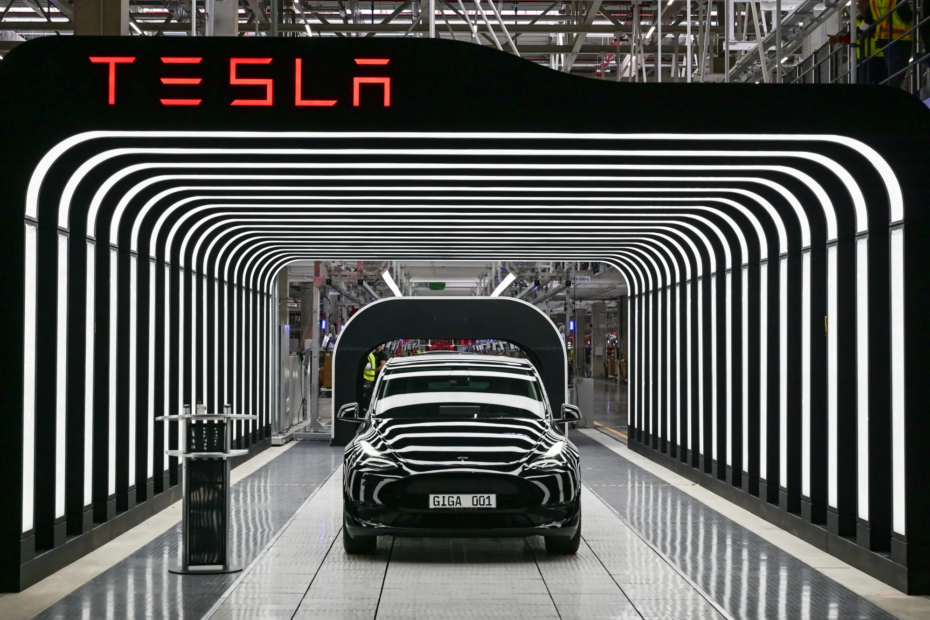The industry of electric vehicles (EV) is always changing rapidly, and Tesla, a trailblazer in this area, is now confronted with great challenges. The fierce competition and changing consumer demands have been noted as having caused the company’s delivery figures to drop. This article aims to evaluate the factors influencing Tesla’s recent performance, study the dynamics of the industry, and look at the future opportunities for the most successful electric car manufacturer in the world.
Examining the Falling Deliveries of Tesla closely
Second quarter 2024’s Tesla vehicle deliveries are expected to drop by 6%. The company has not suffered quarterly declines in a number of straight quarters before now. Analysts project that between April and June, Tesla will deliver 438,019 cars. Many factors affect this particular figure in the market.
China’s growing degree of rivalry
One of Tesla’s most significant markets, China now boasts more local car manufacturers’ competitiveness. Companies like BYD have developed creative and more affordable electric car models that appeal to a sizable share of the market. Tesla’s response, which includes incentives like reduced financing options and price cuts, has not been enough to totally counterbalance the impact of the growing competitiveness.
Change in Customer Preferences
Nowadays, the global automotive sector is moving toward hybrid cars—which strike a mix between traditional gasoline engines and electric power. This inclination has caused some potential Tesla buyers to focus on these substitutes, which has helped the company’s inventory to grow and required aggressive pricing policies.
Overcoming challenges in operations and finance
Under such weight, Tesla’s financial performance has also been faltering. With a 25% drop in shares over this year, the company is among the poorest performers on the S&P 500 index. The large discrepancy between the reality and the lofty sales projections given by CEO Elon Musk has led to the use of cost-cutting policies involving significant layoffs.
Effects of Price Reductions on Fleet Value
Due to Tesla’s regular sales price cuts, which have caused discontent among leasing businesses, the value of leased fleets has been badly affected in Europe. High repair costs and slow service response times have further strained relations with corporate customers, who made a sizable share of Tesla’s sales in the local market. This has been exacerbated by slow response times for services.
Fresh advances in design and manufacturing
Over the last several years, minimal changes have been done to Tesla’s fleet of cars. While other cars, such the Model Y SUV, Model S sedan, and Model X SUV, have not seen significant redesigns of their individual designs, the Model 3 sedan was upgraded at the end of the previous year. Lack of innovation, which has led to the release of fresh and attractive models, puts Tesla behind its competitors.
To maintain its market leadership posture and keep pushing expansion, Tesla will have to make critical decisions coming forward. Its strategy mostly depends on the introduction of new models more affordably priced as well as technological advancements allowing autonomous driving.
Elon Musk’s choice to change Tesla’s focus to concentrate on the development of robotaxis has caused investors to voice concerns about the viability and timetable of acquiring fully autonomous vehicles. Though these concerns exist, Tesla plans to introduce its robotaxi on August 8; at this point, the details on production and deployment are still unclear.
Long-term goals with Cybertruck
Though it was previously believed that the Cybertruck would improve Tesla’s product range, production delays, and quality issues have been reported with this vehicle. According to Musk, mass production will not take place until 2025. Moreover, the fact that Tesla’s most recent impact report omits its ambitious target of 20 million vehicles yearly by 2030 points to a more measured approach to the company’s development along its path of expansion.
Conclusion
Within the sector of electric cars, Tesla’s road has been and will always be one of challenges and innovation. Capacity to innovate and adapt will be of great relevance if the company is to effectively negotiate the problems of competitive demands, changing client preferences, and operational constraints. Future of Tesla is expected to be determined in great part by the introduction of new models and advancements in autonomous technologies.
Our Fresh Take
For companies looking to maintain their competitive edge in view of the issues Tesla is now facing—including the fierce competition in China and the shift in consumer demand towards more affordable cars—an Employer of Record (EOR) solution becomes a strategic advantage. An enterprise operations representative (EOR) helps companies to quickly and effectively control their foreign operations, therefore ensuring compliance with local labor laws and minimizing HR processes. For companies considering increasing their operations in India, remunance is clearly the greatest EOR solution available. Remunance offers unmatched knowledge in negotiating India’s convoluted regulatory scene. The business provides customized solutions guaranteeing flawless workforce management, financial economy, and legal compliance. This helps companies to focus on their main operations and strategic development free from administrative concerns regarding HR and regulatory difficulties.


 Schedule a free call
Schedule a free call